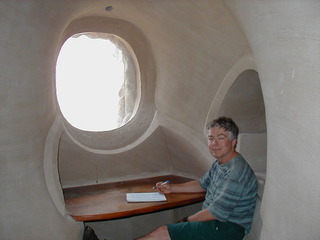Wednesday, April 24, 2024
War is not the answer
I cannot remember when the United States has not been at war somewhere on planet Earth. With more than 700 known military outposts circling the globe, it is difficult to see how this finally ends in anything other than catastrophe.
…
Enemies and Neighbors: Arabs and Jews in Palestine and Israel, 1917-2017 (Allen Lane, 2017; Penguin pb 2018) by Ian Black, who was Middle East editor of the Guardian until 2016 and served for 35 years as the paper’s Jerusalem Correspondent, Diplomatic Editor, and Chief Foreign Editorial Writer. Twenty-six chapters comprise the book, covering Palestine from 1882 until 2017, including the beginnings of the Zionist movement through the hundredth anniversary of the Balfour Declaration and President Donald Trump’s promise, fulfilled in 2018, to move the US Embassy from Tel Aviv to Jerusalem.
The Hundred Years’ War on Palestine: A History of Settler Colonial Conquest and Resistance (Profile Books, 2020) by Rashid Khalidi, the Edward Said Professor of Palestinian Studies at Columbia University, is the second. His story of six declarations of war on Palestine (1917-1939, 1947-1948, 1967, 1982, 1987-1995, 2000-2014) generally follows the timeline of Enemies and Neighbors. I imagine a new edition will include the seventh declaration of war. The history of Palestine over the past hundred years is intertwined with that of his family, who were leaders of Palestinian society and politics until 1948. The book includes a photograph of the ruin of the family house. Family history and archives are a source of much of his material.
Against Erasure: A Photographic Memory of Palestine before the Nakba (2016, in Spanish by Ediciones del Oriente y el Mediterráneo, Madrid; Republished in 2024 by Haymarket Books, translated into English) by Teresa Aranguren and Sandra Barrilaro. This collection includes rescued photographs of a vibrant life in Palestine that included Arabs, Christians, and Jews who lived on the land that politicians and adherents of the three Abrahamic religions and cartographers called Palestine, then and now.
Khirbet Khizeh: A Novel (Originally published in Hebrew in 1949; 2008 in English translation by Farrar, Strauss and Giroux; also known as Hirbet Hizeh and Hirbet Hizah) by S. Yizhar (1916-2006) who was Yizhar Smilansky. Y. Smilansky was born in Rehovot and was a member of the Knesset from 1949-1966. He previously served as an intelligence officer during the 1948 – 1949 war that led to establishment and recognition of the State of Israel. Khirbet Khizeh is a short historical novel (109 pages) about the expulsion of the Arabs from the fictional village of that name.
Liberalism, working classes and climate policies
What is the most that a working-class person could hope for from a net-zero future? At present, in the vision being broadly promoted, it’s the same hard work, the same exploitation, but with a heat pump instead of a gas boiler. What do people fight and die for? They don’t fight and die for a fluorescent-lit strip mall. They don’t go and die to have central heating. Much of the discourse around net zero seeks to replicate all the comforts of middle-class life—for the middle class. That it needs the working class to come on board and do their bit to achieve it is one of many hypocrisies.
Tuesday, April 23, 2024
Industrial policy
James Galbraith starts with a high level review of the three Biden bills that take a stab in the direction of industrial policy. His tone is “damning with faint praise”: they probably have and will produce some positive results, but are not game-changers. And they do not amount to an industrial policy.
The second half of the post gives the real meat: why, as they say in Maine, you can’t get there from here. In this case, financiers, tech oligarchs, and arms makers hold sway, with the influence of academics, scientists, and unions greatly reduced. The current power players simply don’t care about the public at large having nice things, here a productive economy that generates shared prosperity.
Monday, April 01, 2024
Fluvoxamine in combo with bromhexine, cyproheptadine, and niclosamide
Early treatment with these drug combinations in COVID-19 outpatients reduced the likelihood of clinical deterioration significantly. It also led to rapid reductions in viral load, serum cytokines, and the burden of post-acute sequelae of SARS-CoV-2 (PASC) symptoms.

